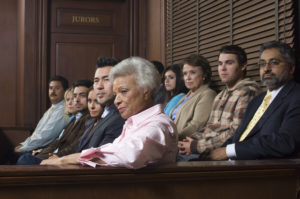The Tormey Law Firm Restraining Order Handbook Part 5
What happens at a Final Restraining Order (FRO) hearing?
If the court has issued a temporary restraining order and the matter has not been dismissed by the plaintiff or resolved via civil restraints, the case will proceed to a final restraining order trial. All final restraining order trials in New Jersey take place in the New Jersey Superior Court, Family Part and will be decided by a judge. In other words, a jury has no role in a restraining order matter and will not decide the ultimate issues of whether or not a predicate act of domestic violence occurred and if the plaintiff needs to be protected from the defendant. As with all trials, it is the plaintiff’s burden to prove that a final restraining order should be issued. Accordingly, the plaintiff will present testimony, call witnesses and provide documentary evidence, subject to cross-examination, and the defendant can also present testimony, call witnesses and provide documents. The bottom line is that, a final restraining order trial is controlled by the New Jersey Court Rules and the Rules of Evidence, and whether you are a plaintiff or defendant in a restraining order matter, the experienced restraining order attorneys at the Tormey Law firm are available to advocate on your behalf during a final restraining order trial.
In order for a temporary restraining order to become a final, permanent restraining order, the plaintiff must prevail at a final restraining order trial. That is, the plaintiff must prove in court by a preponderance of the evidence that a predicate act of domestic violence occurred and that there is a need for future protection. The preponderance of the evidence standard only requires a showing of “more likely than not” or, commonly described as 51%, that the plaintiff should win. However, the evidence still must be compelling and convince the judge that the plaintiff truly is a victim of domestic violence and that a final restraining order is necessary. Both parties to a restraining order matter, in so far as being properly prepared and submitted to the court, can admit into evidence physical items such as documents, photographs, text messages, e-mails, Facebook posts, and all other types of social media messages. But, the exhibits must be properly prepared and authenticated within the rules of evidence.
In addition to the physical evidence, the plaintiff must also provide testimony regarding the alleged act of domestic violence, alleged history of domestic violence, and ongoing fear of the defendant. Accordingly, the plaintiff will present their side of the case by way of testimony during direct examination. Then, the defendant can ask questions of the plaintiff during cross-examination in an effort to undermine the plaintiff’s case and credibility. Similarly, the defendant can also present their own testimony by way of direct examination and then be subjected to cross-examination. Both parties can also call third party witnesses, for example family, friends, or police officers, who witnessed the alleged domestic violence incident as long as the witness has firsthand knowledge of what did or did not happen between the plaintiff and the defendant.
I need help with a Final Restraining Order trial in New Jersey
In short, a final restraining order trial is a presentation of testimony and exhibits to prove a restraining order is needed. The restraining order attorneys at the Tormey Law Firm have successfully represented both plaintiffs and defendants at final restraining order trials and regardless of whether you are a plaintiff or a defendant, the domestic violence lawyers at the Tormey Law Firm are ready to advocate on your behalf to prevail at your final restraining order trial.





